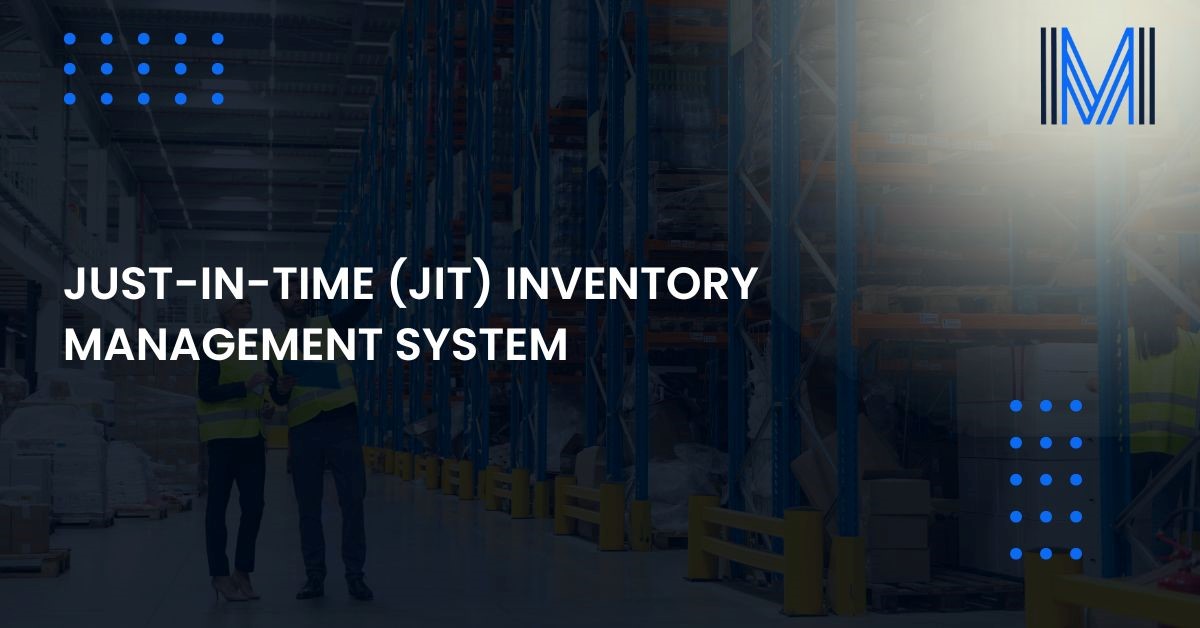02 Jan

Just-in-Time (JIT) Inventory Management Explained
Just-in-Time (JIT) inventory management, pioneered by the Toyota Production System in the mid-20th century, revolutionizes how businesses handle their inventory. Designed to minimize the amount of inventory held, JIT ensures that materials and products are ordered only when needed for production or to fulfill customer orders. In today’s dynamic business environment, characterized by supply chain challenges and the demand for lean operations, JIT has become increasingly relevant for enhancing efficiency, reducing waste, and boosting profitability.
Advantages of Just-in-Time Inventory Management
1. Reduced Waste:
JIT minimizes overproduction and excess stock by ordering only what is necessary. This approach decreases the risk of unsold products and obsolescence. For example, companies implementing JIT have reported up to a 30% reduction in inventory-related costs in 2024, ensuring that only defect-free products reach customers.
2. Improved Warehouse Efficiency:
Leveraging advanced inventory management software, JIT streamlines warehouse operations. Automation eliminates inefficiencies, while continuous process improvements ensure optimal workflow. This results in faster order processing and reduced handling times, enhancing overall warehouse productivity.
3. Reduced Costs:
Receiving inventory precisely when needed cuts various operational expenses, including storage space, labor for managing excess stock, and costs associated with potential damage from prolonged storage. Efficient ecommerce fulfillment services further lower costs by optimizing order processing.
4. Enhanced Customer Service:
JIT improves customer satisfaction by reducing lead times and ensuring high-quality products. In the e-commerce sector, businesses can fulfill orders more swiftly and accurately, meeting customer expectations and fostering loyalty.

Disadvantages of Just-in-Time Inventory Management
1. Supplier Dependence:
JIT heavily relies on dependable suppliers who deliver the right quantities on time. Any disruption, such as delays or quality issues from suppliers, can halt production schedules and affect customer satisfaction.
2. Increased Planning Needs:
Effective JIT requires meticulous planning and accurate demand forecasting. Businesses must anticipate varying customer demands, especially during peak seasons, to maintain appropriate inventory levels and avoid stockouts.
3. Missed Business Opportunities:
Maintaining minimal stock increases the risk of stockouts, potentially causing missed opportunities if companies cannot fulfill large or unexpected orders promptly.
How Does Just-in-Time Manufacturing Work?
JIT operates through a streamlined stock control system involving key stages:
- Demand Forecasting: Predicting customer demand using historical data and market trends.
- Supplier Coordination: Ensuring timely and accurate deliveries from suppliers.
- Production Scheduling: Aligning production schedules with actual demand.
- Continuous Improvement: Regularly assessing and refining processes to enhance efficiency.

Suitable Industries for Just-in-Time Manufacturing
JIT is versatile and benefits various industries, including:
- Fashion: Allows quick adaptation to changing trends, reducing unsold seasonal inventory.
- Technology: Manages rapidly evolving products, minimizing obsolete stock.
- Retail: Lowers storage costs and ensures product availability, enhancing customer satisfaction.
- Packaging, Luxury Goods, and Publishing: Each sector leverages JIT to optimize inventory and respond swiftly to market demands.
Implementing Just-in-Time Inventory Management
1. Accurate Demand Forecasting
Utilize historical sales data, market trends, and promotional planning to predict future demand accurately. Tools like predictive analytics software can enhance forecasting accuracy.
2. Reliable Backup Suppliers
Establish relationships with dependable backup suppliers to mitigate risks associated with primary supplier disruptions, ensuring continuity in production.
3. Consider Kanban Systems
Implement a Kanban system—a visual tool using cards to signal when to reorder materials. This ensures a smooth and efficient production process by maintaining optimal inventory levels.
Conclusion
While JIT inventory management is not suitable for all businesses, those that can effectively implement its principles stand to gain significant efficiency and profitability improvements. At Meteor Space, we specialize in helping businesses transition to JIT seamlessly. Our team of experts offers tailored JIT implementation plans, including order fulfillment services, ecommerce fulfillment services, and pick and pack fulfillment services. Ready to streamline your inventory and boost your profits? Contact Meteor Space today to discover how JIT can transform your business and unlock its full potential for success.


